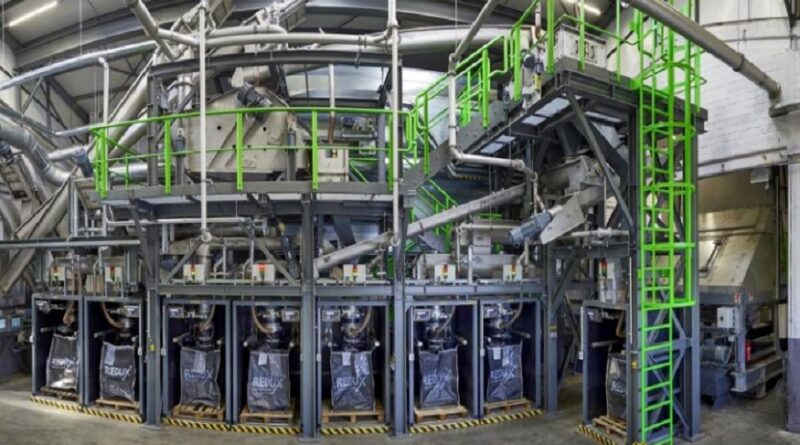Lithium-ion Battery Recycling in India
India has embraced battery recycling in different ways over the last few decades to save fossil fuels for future generations. When we are talking about battery usage, nowadays, Lithium-ion batteries are the most used batteries as every portable electronic device is running on them. The durability and the potential for power stores are some of the features that make these batteries popular in the market. Even manufacturing companies of EVs have started using these batteries in their vehicles.
However, lithium-ion batteries are manufactured using rare-earth materials, which are hazardous to the environment in many ways. The largest battery recycling companies found that recycling is the most sustainable way to manufacture and promote lithium-ion batteries. The Indian government has also taken significant steps to promote lithium-ion battery recycling. Below we will discuss some aspects related to lithium-ion battery recycling.
Recycling Lithium-ion Batteries
As the usage of lithium-ion batteries increases, manufacturing new batteries and gathering raw materials are the biggest challenges faced by the lithium-ion battery companies, especially the automobile sector, which are looking to switch toward electric vehicle engineering in India. While looking into the issue, many companies in India have taken the initiative to recycle lithium-ion batteries.
These companies are getting authorized by the Indian government to proceed with the recycling procedures. Battery recycling companies gather dead lithium-ion batteries in various electronic sheds and dump yards. Every company uses different procedures for recycling batteries. However, their common aim is to extract rare-earth metals and other usable substances from the batteries and send them back to the battery manufacturing companies. As billions of dead Li-ion batteries are dumped into electronic sheds and dump yards, researchers have worked on it and made a statement that recycling these batteries could be an effective and sustainable way to manufacture new batteries, especially for EVs.
The Current Market for Lithium Battery Recycling
As mentioned before, most Lithium batteries are used in portable or consumer electronics. Thus, the battery recycling companies are gathering these batteries from electronic sectors. As the EV technology sector struggles to produce a high number of one-time-use batteries, recycled batteries are bound to gain popularity.
When we talk about the EV sector alone, the demand for Lithium-ion battery materials is currently in the region of 1,200,000 metric tonnes as of 2022. This number is expected to reach 7,500,000 tonnes of required materials by 2030. The global recycling market is set to exponentially jump from 4.9 billion in 2022 to a whopping 20 billion in 2030. Hence, it is time to take action and promote the lithium-ion battery recycling industry. Significant companies are already started to invest billions to gain profits in the long term.
Key issues for recycling Lithium-ion batteries
Setting up an efficient battery collection network
It is a difficult task to set up a battery collection set up within the country. People are still dumping end-of-life li-ion batteries in landfills. To resolve this problem, it is essential to spread awareness about how hazardous it is to dump these batteries in landfills so that people start to collect them and send them to the dump yards. This would be easy for the battery recycling companies to create a collection network with dump yards.
No specific battery design for recycling
Lithium-ion batteries have a far more intricate structure, consisting of multiple small cells that are grouped to form a module, which is then put together with other modules to form the total battery pack. A battery pack for an automobile is made up of hundreds or thousands of cells, each of which needs to be opened and separated from the whole. Safe dismantling is labor- and time-intensive due to the complicated structure, risks of electric shock, and probable fires.
The delay in recycling lithium-ion batteries
Due to certain problems in recycling li-ion batteries, the companies notice a delay in the recycling procedure. The structure of lithium-ion batteries is complex and needs extra time and labor to recycle. However, with some of the techniques already invented, researchers are still working on finding the best and faster techniques for recycling.
The Scenario of Lithium-ion Recycling in India
India has already taken the initiative for battery recycling to address the challenges associated with the nationwide rollout of electric vehicles. Many companies are already up in India for recycling electronic waste. Over the past few years, the Indian government has implemented various policies to foster an atmosphere that will encourage the expansion of electric vehicles. The government promised a long-term boost for the EV industry through the Faster Adoption and Manufacturing of Hybrid and Electric Vehicles (FAME-I and II) initiatives. However, it is also acknowledged that the region’s battery cell manufacturing sector might support a transition to more ecologically friendly modes of transportation.
Wrapping Up
BatX Energies is the biggest battery recycling company established in India, which recycles lithium-ion batteries to extract black mass, rare-earth materials, and other substances from the battery. The company is working to create a circular economy for lithium-ion batteries to mitigate the reliability of raw materials in other countries.

